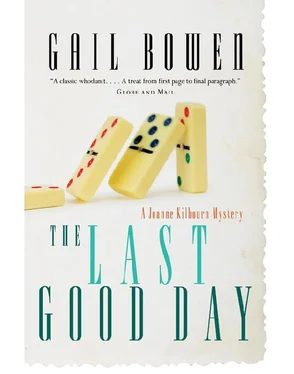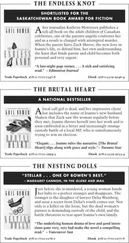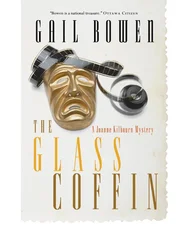Gail Bowen - The Last Good Day
Здесь есть возможность читать онлайн «Gail Bowen - The Last Good Day» весь текст электронной книги совершенно бесплатно (целиком полную версию без сокращений). В некоторых случаях можно слушать аудио, скачать через торрент в формате fb2 и присутствует краткое содержание. Жанр: Классический детектив, на английском языке. Описание произведения, (предисловие) а так же отзывы посетителей доступны на портале библиотеки ЛибКат.
- Название:The Last Good Day
- Автор:
- Жанр:
- Год:неизвестен
- ISBN:нет данных
- Рейтинг книги:4 / 5. Голосов: 1
-
Избранное:Добавить в избранное
- Отзывы:
-
Ваша оценка:
- 80
- 1
- 2
- 3
- 4
- 5
The Last Good Day: краткое содержание, описание и аннотация
Предлагаем к чтению аннотацию, описание, краткое содержание или предисловие (зависит от того, что написал сам автор книги «The Last Good Day»). Если вы не нашли необходимую информацию о книге — напишите в комментариях, мы постараемся отыскать её.
The Last Good Day — читать онлайн бесплатно полную книгу (весь текст) целиком
Ниже представлен текст книги, разбитый по страницам. Система сохранения места последней прочитанной страницы, позволяет с удобством читать онлайн бесплатно книгу «The Last Good Day», без необходимости каждый раз заново искать на чём Вы остановились. Поставьте закладку, и сможете в любой момент перейти на страницу, на которой закончили чтение.
Интервал:
Закладка:
The Last Good Day
Gail Bowen
CHAPTER
1
The cosmos should send forth a sign when a good man approaches death, but the night Chris Altieri joined me in the gazebo to watch the sun set on Lawyers’ Bay, there was nothing. No fiery letters flaming across the wide prairie sky; no angels with bright hair beckoning from the clouds. The evening was innocent, sweet with summer dreams and the promise of life at a cottage in a season just begun. It was July 1, Canada Day. The lake was full of fish. The paint on the Muskoka chairs was crayon bright; the paddles, sticky with fresh varnish, were on their hooks in the boathouse; and the board games and croquet sets still had all their pieces. September with its tether of routine and responsibility was a thousand years away. Anything was possible, and the gentle-voiced man who dropped into the chair next to mine seemed favoured by fortune to seize the best that summer had to offer.
Bright, successful, and charming, Chris Altieri was, in E.A. Robinson’s poignant phrase, everything to make us wish that we were in his place. Yet this graceful man wouldn’t live to see the rising of the orange sun that was now plunging towards the horizon, and when I learned that he was dead, I wasn’t surprised.
I was a newcomer to the small community of Lawyers’ Bay, renting the cottage that belonged to my friend Kevin Hynd, who was spending the summer exploring the mystical Mount Kailas in Tibet. My trekking days were over. Kevin’s cottage, on a lake seventy kilometres from Regina, with good roads all the way, was adventure enough for me, as it was for my daughter Taylor, my son Angus, and his girlfriend, Leah. We’d been at Lawyers’ Bay less than a week – long enough for me to master the idiosyncrasies of the motorboat and the ancient Admiral range in the kitchen, not long enough for me to know much at all about my new neighbours, the privileged group who, until he walked away, had been Kevin’s law partners and who were still his friends. When they met twenty-five years ago in law school, they called themselves the Winners’ Circle; the name stuck, but Kevin hadn’t mentioned whether the group’s members saw it as a source of pride or irony.
So far I had met the members of the Winners’ Circle only in passing. My family and I had arrived the previous Sunday afternoon, when the partners at Falconer Shreve were just packing up to go home. I’d spoken briefly to Delia Wainberg, the sole female partner in the firm, but the others had only had time to wave and call out a welcome before they headed back to the city and the demands of a high-powered law practice.
The Canada Day party that Falconer, Shreve, Altieri, and Wainberg threw every year to celebrate our nation’s birthday was legendary in cottage country, and I had counted on it as my chance to get to know my new neighbours better. There’d been no shortage of opportunities. I’d water-skied with Falconer Shreve’s juniors and clients, kayaked with Falconer Shreve friends from the city, and played beach volleyball with the cottagers who lived on the other side of the gates that separated Falconer Shreve families from the lesser blessed. Faces glowing with the soft sheen of summer sweat, we fortunate few had spent the last twelve hours savouring the newest, the fastest, the finest, and the freshest that money could buy.
By anyone’s standards, it was one hell of a party, and there had been enough revealing glimpses of the people who were paying the bill to satisfy my curiosity. The first came in early afternoon, not long after the party started. People had donned bathing suits and were gathering along the shore to swim and water-ski. Zachary Shreve and Noah Wainberg had fired up boats and were idling offshore waiting for customers. The teenagers, mine included, were lining up when Blake Falconer’s wife, Lily, strode to the end of the dock and called out to Zack Shreve.
“Let’s go,” she said. He gave her a short wave of acknowledgement and they were away. Lily’s performance was nothing short of virtuoso. She was in her early forties, but she skied with the abandon of a sixteen-year-old who believed she was immortal. It was clear that Zack had driven the boat for her before. Periodically, he would do a shoulder check and she would give him a hand signal indicating that he should go faster. Lily took the jumps at speeds that I knew were dangerous, but she never faltered. It wasn’t long before the party guests stopped whatever they were doing just to watch her. I was standing beside Blake Falconer at the end of the dock. He followed his wife’s progress without comment, but he didn’t appear to exhale until she finally signalled to Zack to cut the motor and she sank into the water.
As Lily swam the few metres to shore, I turned to her husband. “That was astonishing,” I said.
“Somehow Lily always manages to survive,” he said, then he walked to the end of the dock to offer his wife a hand.
There had been other revelations. During the swimming races, my ten-year-old daughter, Taylor, discovered to her delight that the only other children staying at Lawyers’ Bay were two girls a year older than her, and after five minutes of squealed exclamations over shared passions, the trio had bonded as effortlessly as puppies and gone off in search of food to inhale and boys to taunt. Later, there was a more poignant moment. While I was waiting for my turn to waterski, I drifted over to watch Delia Wainberg’s husband, Noah, help parents supervise the toddlers who had decided to venture into the lake. To see him knee-deep in water reassuring a slippery three-year-old with water wings and attitude was to understand the patience of the saints. Hugging her knees to her as she squinted through the smoke from her cigarette, Delia watched from her towel on the beach. When she called out to her husband, Noah turned expectantly. “Hey,” she said in her appealing husky-squeaky voice. “They should make water wings for adults – something to keep us from sinking.”
“That’s what I’m here for, babe,” Noah said.
Her husband’s gentle gallantry sailed right past Delia. “Actually, I was thinking about Chris,” she said. “I’m worried about him.”
“I should have known,” her husband said softly, then he bent to guide the child he was holding towards the safety of her mother’s arms.
Delia Wainberg wasn’t the only partner anxious about Christopher Altieri that day. The men and women of Falconer Shreve were good hosts, laughing, chatting, urging guests to refill a glass, replenish a plate, enjoy themselves. But it was apparent Chris’s state of mind worried those who knew him best. Despite repeated attempts to draw him into the fun, Chris remained alone and unfocused, the spectre at the feast.
When Chris and I arrived simultaneously at one of the washtubs of ice and drinks that had been placed strategically along the beach, Zack Shreve seemed to appear out of nowhere. He fished soft drinks out for Chris and me. “The skiers keep on coming, Chris,” he said. “I need somebody else along in the boat. Interested?”
Chris’s smile was sweet. “Maybe ask one of the others,” he said. “I’m not too sharp today.” Then he walked away without another word of explanation.
“Something wrong there?” I said.
Zack’s eyes were still on Chris. “He just got back from Japan. Could be jet lag – at least that’s what we’re hoping.”
“Because jet lag goes away,” I said.
“Right,” Zack said absently. Suddenly, he seemed to realize I was standing there. “Hey, I’m not much of a host. Want me to open that Coke for you?”
“Thanks, but I’ve been opening my own Cokes for a few years now.”
“I have other talents,” he said. “Sit next to me at the barbecue tonight, and prepare to be dazzled.”
Читать дальшеИнтервал:
Закладка:
Похожие книги на «The Last Good Day»
Представляем Вашему вниманию похожие книги на «The Last Good Day» списком для выбора. Мы отобрали схожую по названию и смыслу литературу в надежде предоставить читателям больше вариантов отыскать новые, интересные, ещё непрочитанные произведения.
Обсуждение, отзывы о книге «The Last Good Day» и просто собственные мнения читателей. Оставьте ваши комментарии, напишите, что Вы думаете о произведении, его смысле или главных героях. Укажите что конкретно понравилось, а что нет, и почему Вы так считаете.












